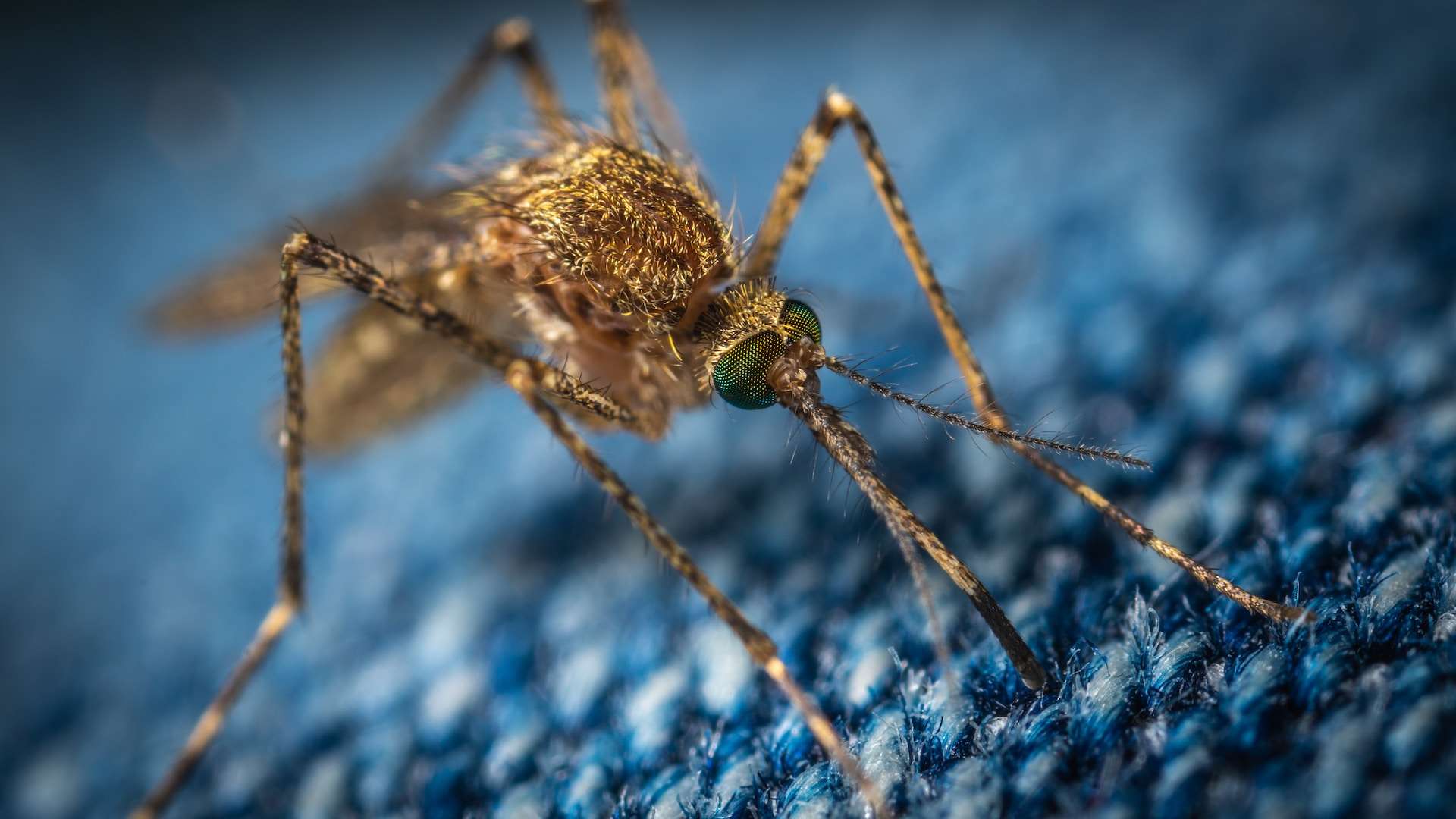Some of the products on this page come from partners who may compensate us when you click on their links or take specific actions. This helps us keep our content free. That said, our opinions are our own and based on independent analysis.
Americans are gearing up for summer fun in the great outdoors. However, with warmer weather comes the pesky problem of mosquitoes.
These tiny, buzzing insects can affect any outdoor activity, from backyard barbecues to cross-country vacations. But not all areas of the United States are equally affected by mosquitoes.
To help you prepare for mosquito season, we’ve compiled a state-by-state ranking of mosquito hotspots across the country.
These Are The Top 10 Mosquito-Prone States in the U.S.
When it comes to dealing with mosquitoes, some states in the U.S. have it worse than others.
#1 Louisiana
Louisiana takes the cake as the most mosquito-prone state. The Bayou State’s hot and humid summers provide the perfect breeding ground for these pesky insects.
In 2022, the average temperature from May-July was 81.3°F. Additionally, the state’s high average summer rainfall and variety of mosquito species make it an ideal place for mosquitoes to breed and thrive.
#2 Florida
Florida is well-known for its beautiful beaches, and warm weather. Unfortunately, it also has a reputation for being one of the most mosquito-infested states in the country.
The state’s high average rainfall and warm temperatures provide an ideal environment for the insect.
#3 South Dakota
South Dakota ranks as the third most mosquito-prone state. In 2022, the state experienced a high rate of West Nile virus cases. Additionally, more than 40 species of the insect live in the state.
#4 New York
Similar to South Dakota, The Empire State’s high number of West Nile cases and overall mosquito species, along with its average summertime rainfall, helped earn it the fourth spot.
#5 Texas
Texas,its humid climate, especially during the summer months, provides a perfect breeding ground for mosquitoes. These factors make Texas a prime location for mosquitoes to thrive.
The least mosquito-prone states are mainly out West or in some of the Northern states including Michigan, Nevada, Washington, and Oregon.
America’s Mosquito Hotspots Ranked by State
The ranking of most and least mosquito-prone states was determined by;
A 100-point scale based on average summer temperature, rainfall, number of mosquito species, West Nile cases, and Google searches per 100,000 people relating to mosquito prevention.
Louisiana and Florida hold the top two spots due to their warm, humid climates.
South Dakota’s high number of West Nile cases, Google searches, and average summer temperature pushed the state up to the third spot on the list.
The fourth and fifth spots on the list are held by New York and Texas. Delaware and Nebraska both tied for sixth place.
Several Southern states complete the top 10 with Georgia at 7th, Alabama in 8th, North Dakota and South Carolina tied for 9th, and North Carolina, Kentucky, and Mississippi at number 10.
The Health Risks of Mosquito Bites
In several states, including Louisiana and Florida, which are particularly prone to mosquitoes, the chances of getting mosquito-borne diseases increase a lot in summer. The Centers For Disease Control And Prevention (CDC) mentions that such diseases can ingest immense costs in terms of health, hospitalizations, or even death. Such as:
West Nile Virus: Most states are infested with this virus and it comes with some severe neurological problems.
Dengue Fever and Malaria: New cases of these two fevers have also been rising recently in the U.S, especially in areas with a high population of mosquitoes.
Considering all these risk factors, it is paramount for the people residing in the areas prone to dengue or malaria areas and traveling to them, in both cases insurance must be paid full consideration.
Why Insurance Matters in Mosquito-Prone States
Individuals located in states that are heavily infested by mosquitoes should pay particular attention to their health insurance for various reasons:
Increased Incidence of Claims: Statistics reveal that a huge number of health insurance claims throughout the year are made during the high periods of mosquitoes due to vector borne diseases.
For instance, illnesses caused during one season contribute to almost 15 percent of the claims made in summer months due to malaria and dengue.
Financial Protection Against Unexpected Illnesses: Malaria and other illnesses contracted from mosquitoes can be quite expensive to contain and treat. Comprehensive health insurance cover can be a very useful tool to combating such worries regarding unforeseen medical expenses.
Preparedness and Awareness: related with mosquitoes especially of getting diseases can help to encourage education and preventive disease measures to be adopted.
Such measures include not only active protection of oneself, but also making sure that there is enough health insurance cover to deal with health problems resulting from mosquito bites.
Insurance Solutions for Mosquito-Borne Diseases
Mosquito-borne illnesses can be highly troublesome, making securing the right insurance essential. Here are some key aspects to consider:
Coverage for Vector-Borne Diseases: Various health insurance providers allow their customers to claim treatments that are in regards to diseases caught from mosquito bites – for instance, malaria or dengue. Hospitalizations and other treatments associated with these can cost a fortune, anywhere between $50,000 to $150,000.
Mosquito Bite Insurance Policies: Thankfully, with the advancement in the insurance industry, companies today have introduced specific policies aimed to assist people that have a tendency of getting sick due to mosquito bites.
These specific policies relieve customers. Within them, the Insurance Company provides a lump of payment when a specific type of illness is diagnosed, related to a mosquito bite, during hospitalization.
Preventive Measures: Despite the case apply other preventative precautions as well. You can wear protective clothing, Use insect repellent, and employing mosquito control solutions like sprays or traps could go a long way in reducing the impact.
Least Mosquito-Prone States in 2023
1.Michigan
It tops the list of states where people can enjoy the outdoors without having to constantly swat away mosquitoes. Michigan earned this title based on its mild summer temperatures, low summer rainfall, a limited number of mosquito species, and lack of West Nile cases throughout the state.
2.Nevada.
Despite the high summer heat, the state’s low rainfall makes it a less attractive environment for mosquitoes.
Washington and Oregon tie for third place, followed by Utah, Idaho, Alaska, Massachusetts, and Tennessee. While these states still have some mosquito activity, their overall scores suggest that they are less affected by mosquitoes than other parts of the country.
Which U.S. Cities Are Most Concerned About Mosquitoes?
People in Baltimore are the most concerned about mosquitoes across the U.S. Baltimoreans are followed by residents of Washington D.C., Las Vegas, Denver, and Seattle.
As for the cities least concerned about mosquitoes, New Yorkers rank #1. followed by Chicago, Houston, Phoenix, and San Antonio.
These cities may not have as high a prevalence of mosquitoes or may have a lower risk of mosquito-borne illnesses, leading to less concern about prevention measures.
Methodology
To determine our ranking, we compared every state across five key metrics:
- Average summer temperature,
- Average summertime rainfall,
- Number of mosquito species,
- West Nile cases in 2022,
- Google search data about mosquito prevention per 100,000.
We graded each metric on a 20-point score. To determine an overall score, each city’s weighted average was calculated across all metrics.
In order to determine the number of Google searches, we analyzed 2,153 Google search terms relating to mosquito prevention from March-September 2022.
We looked at the average number of monthly searches and compared it to each state and major city’s population, per 100,000 residents.
Sources: U.S. Census Bureau, National Oceanic and Atmospheric Administration, Centers for Disease Control and Prevention, World Population Review, and Google Ads.
For media inquiries, please contact media@insuranks.com
Fair Use
When using this data and research, please attribute by linking to this study and citing insuranks.com



